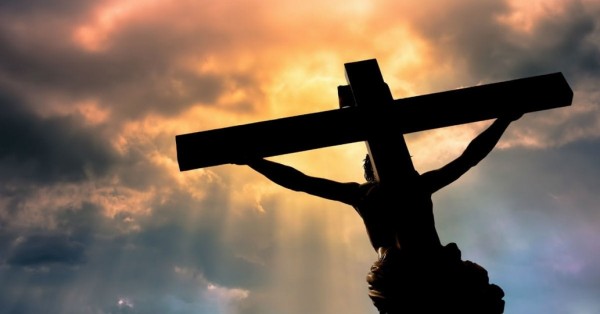
So, if it wasn’t for urging his fellow beings to love one another more, what actually led Christ to the cross? What we know is that different groups had different motivations, and only by understanding the convergence of so many interests from so many groups can one comprehend how the most innocent man in History could be so cruelly and publicly executed. Jesus and His message were (and are) a threat to the powerful—and it’s not hard to understand the motivation of the Roman occupying government or the Jewish upper class, the Sadducees, or the way in which the crowds were manipulated.
Perhaps the most interesting motivation is that of the Pharisees and their scribes. The demonization with which they are often preached about might cause us to overlook the nuance. We cannot oversimplify the complicated relationship between Jesus and the Pharisees. From a similar social class and close to the people just like Jesus, the Pharisees were meant to find common ground with him. What led the Pharisees to demand Jesus's crucifixion? It’s evident that Jesus criticized their hypocrisy and legalism: to be in communion with God, one had to follow an extensive number of laws. Moreover, one of Jesus's criticisms is that many of these laws were not part of the Torah but rather tradition disguised as commandments.
What’s fascinating is that the condemnation of the Pharisees was already prophesied in the Old Testament. There’s a section in the Book of Wisdom, proclaimed on the Friday of the Fourth Week of Lent, that foretells the Pharisees' reasoning: " Let us beset the just one, because he is obnoxious to us; he sets himself against our doings, Reproaches us for transgressions of the law and charges us with violations of our training. He professes to have knowledge of God and styles himself a child of the LORD. To us he is the censure of our thoughts; merely to see him is a hardship for us, Because his life is not like that of others, and different are his ways. He judges us debased;
he holds aloof from our paths as from things impure. He calls blest the destiny of the just
and boasts that God is his Father." (Wisdom 2:12–16). Therefore, "With revilement and torture let us put him to the test that we may have proof of his gentleness and try his patience. Let us condemn him to a shameful death; for according to his own words, God will take care of him."" (Wisdom 2:19–20).
It’s remarkable to remember that this text, accurately predicting the Pharisees’ motivations, was written no fewer than 130 years before Jesus's birth. Jesus upset those who had set themselves as interpreters and editors of the Torah; those who most quoted the Law were criticized by him for how little they applied it to themselves. Jesus challenged the principles upon which the Pharisees' entire worldview and way of life were based—it is total self-giving and service that will lead us to communion with God, not the strict observance of the letter of the law.
This citation also provided the charge that would serve in the two legal systems that judged Jesus: the claim of "knowing" God, proclaiming himself his Son, and uniting himself with divinity. This is the charge that ultimately led Jesus to the cross, as it constituted blasphemy for religious sensibilities and insurrection under Roman law, for only their representative, Governor Pilate, could impose the death penalty—a right the Romans had taken away from the Sanhedrin around the year 6.
It’s one of the lessons of the cross as we update Good Friday to our current world. It won’t be the minor sins, bad words, or small legal infringements that keep Christ on the cross—although for many, that’s all Christian ethics seem to offer. But no, Jesus's ethics go much further. As the Book of Wisdom prophesied, Jesus opposes what the powerful, the unjust, the inhumane do. Two thousand years later, the Lord's disciples are also called to oppose any abuse, any injustice, any affront to human dignity.
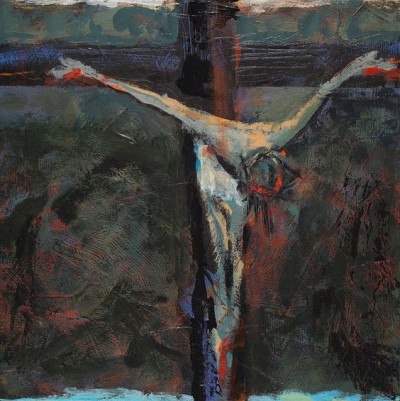
In the Passion Narrative, Jesus shows his radical vulnerability. He is crucified as a criminal abandoned by his disciples, in pain and in agony, mocked by Romans, rejected by Jews.
Jesus shows himself so vulnerable and powerless to the level of exasperation. We have a feeling that Jesus could have done more to avoid such pain. He is mocked and ridiculed, betrayed and denied, humiliated and tortured; even criminalized, and yet he does not do anything to avoid it.
Even at his last moments when torture is unbearable, He shows no indication that he will use a final ace (or superpower), to pulverize his enemies (maybe we’ve watched too many Hollywood movies.) In fact, not even during His Resurrection, does Jesus seem to care about making things right, about swift revenge for those who wronged him. At the Cross, Jesus is hurt physically, socially, psychologically, in all possible ways, yet he is there showing his weakness as if He chose the path of vulnerability.
There is a paradox in the Cross. On one side, the more vulnerable we are, or we want to become, the easier it is to be hurt. Vulnerability exposes us like Jesus was exposed publicly on the Cross. We can become the easy target of gossip, judgement, prejudice and punished to ostracism. But at the same time, vulnerability makes us free. Jesus was a free man because he did not intend to negotiate power-bargains with Jews or Romans. Jesus did not have to pretend; He literally had nothing to lose. He chose not to carry the burden (or the chains) to have to play the role of the tough guy, or strong leader, not even confident believer (remember his crushing words “Father, why have you forsaken me?”).
The church is not a community of the convinced, or self-righteous; it is the church of the vulnerable.
The church is the community of those who become free to show their miseries, shortcomings and inadequacies; Those able confide in others about their poor skills in parenting, or their mediocre professionalism or their selfishness as partners and recognize their flaws and poor choices. It is a risky business, we can get hurt, but the more we show our cross, the more we recognize our vulnerabilities, and the more we accept them, the easier it will be to heal them.
Making ourselves vulnerable creates a sacred space where we can show our doubts, our uncertainties, our wrong doings, our regrets, our frustrations. We all fail, and we tend to fail often. We can hide our failures, or we can show them and be naked in our personal shameful cross. We may be hurt, but we may also open a space for empathy
… a space for compassion
… a space where we are not judged
… a space for acceptance
where vulnerability begets empathy, and then trust and then, love.
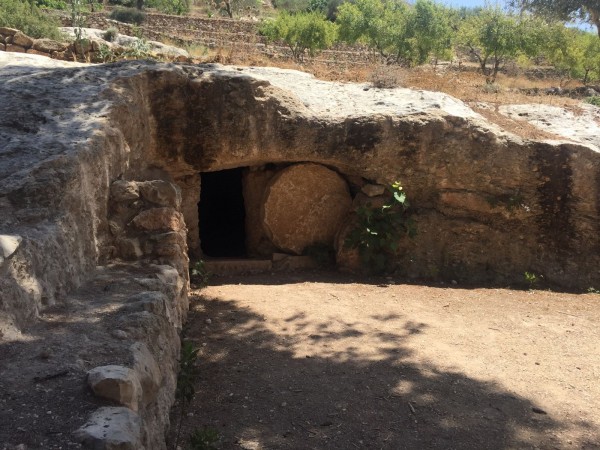
When we read the passion in all four gospels, we can see that there are slight variations about the people present at the crucifixion and burial of Jesus. Interestingly, from all the followers of Jesus that are mentioned in the gospels, there are two people who are always present in all four accounts: Mary Magdalene and Joseph of Arimathea (maybe three with Mary the mother of James and Joseph, See Matt 27:55-28:1; Mark 15:40-16:8; Luke 23:49-24:12; John19:25-20:1). This year on Palm Sunday and Good Friday we read according to Matthew and John that Joseph of Arimathea went to Pilate and asked for the body of Jesus, of whom Joseph was a disciple. He then buried Jesus in a tomb cut on the rock (Matt 27:57-61; John 19:38-42). By ensuring that the body of Jesus was properly buried after the crucifixion, Joseph of Arimathea becomes a key character in the passion narrative. Mark and Luke add more information about Joseph, noting that he was a member of the Sanhedrin (Mark 15:42-47), that he was a righteous man and that Joseph himself took Jesus down from the cross (Luke 23:50-56).
Joseph’s direct request to Pilate to bury a crucified man and Pilate’s approval are, if not problematic, surprising elements from both a narrative and historical point of view. Regarding historicity, it has been noted that the shame of the Roman crucifixion included the denial of a dignified burial. Romans preferred that corpses would decompose on the crosses (this information can be found in any modern commentary on the Gospels, my favorite being that written by Craig S. Keener on the Gospel of John in 2003). From a Jewish point of view, the request to bury Jesus is reasonable, given the command from Deuteronomy 21:22-23 that no corpse shall remain overnight unburied because of the risk of defiling the land.
Additionally, the sudden intervention of Joseph of Arimathea and his disappearance from the narrative afterwards, makes this character notable. A man who has not been mentioned before at all, takes the central place on burying Jesus and ensuring that the prophecy of the resurrection might take place. It is not Peter, nor John, nor any other disciple who takes on this essential part of the passion of Jesus. All four gospels mention Joseph and in all four he appears unexpectedly to fulfill this important duty. And after the burial, Joseph of Arimathea is never mentioned again.
Joseph of Arimathea’s role makes me think of another Joseph that after playing an important part in the life of Jesus disappears and is never mentioned in the gospels: Joseph of Nazareth. Just like the man from Arimathea, Joseph of Nazareth is there to help fulfill the prophecies that Jesus shall be called Son of David (Luke 1:32), that the Messiah was to be born in Bethlehem (Luke 2:4-5; Matt 2:5-6), and that out of Egypt he was called (Matt 2:14-15). Joseph of Nazareth married a woman that was expecting not his child and thus defied a law that requires to denounce Mary publicly (See Lev 20:10; Deut 24:1). Yet, after playing a fundamental role in the life of Jesus, we do not read more about him in the gospels.
Both Joseph of Nazareth and the man from Arimathea come and go in crucial moment of Jesus’ life; just when Jesus needed them the most. There was a Joseph to place Jesus in the manger and a Joseph to place him in the tomb. Both Josephs, the carpenter and the member of the Sanhedrin, act against all odds to ensure critical episodes in the life of Jesus. This idea becomes even more attractive highlighting the etymology and Hebrew root of the name Joseph: May God add, or may God give/increase. I cannot but see Joseph’s name operating in relation to what both men from Nazareth and Arimathea did for Jesus. At the moments when Jesus was most vulnerable, his birth and death, God added, provided, with these two men to be support and to provide for Jesus. These details crate a “Joseph motif” in the canonical gospel’s where both Josephs are called righteous, and they perform indeed virtuous acts for the most vulnerable at that time.
The questions to reflect is how can we be like these Josephs for other people? Are we willing to be there at for the most vulnerable to help them, nurture them, and provide for them? Are we willing to be Josephs that do not need to be all the time at the center of people’s stories, but rather quietly help them?
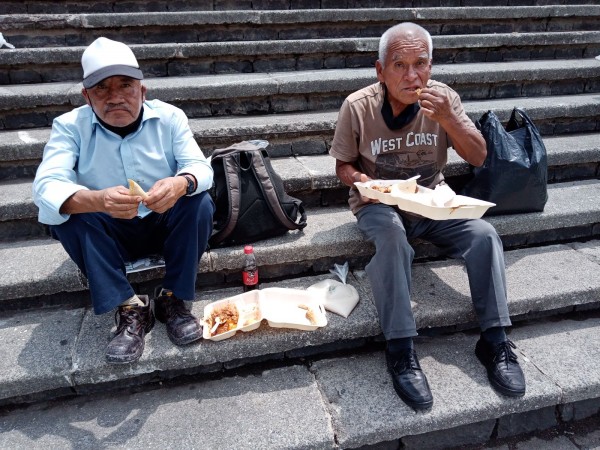
On this day the Church is focusing on the striking and powerful narrative of the Passion according to St. John. Listening to the events that eventually led to the death on a cross of Jesus, it is unavoidable that we reflect today on human suffering, to which he submitted himself.
Suffering and death are part and parcel of human life, even though we all would like to avoid them both especially for our loved ones and for ourselves. Disease, injustice, envy or rivalries will, sooner or later, bring about suffering to ourselves or to those around us. Once we meet these realities, our trust in God will be challenged, again and again.
This is why the story of the passion of Jesus which we read today touches our hearts in a very personal way, because it enshrines everything: in it, we find scenes of goodness, tenderness, friendship and solidarity, as well as others that are marked by treason, lies, violence and death. The full scope of human experience is represented in the Passion narrative, starting from the positive all the way to the darkest moments. We can surely state that Jesus transitioned through the whole of human condition.
At the same time, Jesus is able to merge this great variety of experiences into a single life project, and to offer it to the Father, both the joyous events, as well as the undesirable ones. He does not store up grudges and accepts the opposites and contradictions of his own life trusting fully in the will of the Father. Jesus makes the words of the psalm 30 his own, as he knew them by heart: “In you, o Lord, I take refuge, let me never be put to shame. Into your hands I commend my spirit; you will redeem me, o Lord, o faithful God. (…) My trust is in you, o Lord. You are my God, in your hands is my destiny.”
The questions haunting Jesus on the eve of his passion, as they do to any of us facing similar situations, are the same: who will have the final word in the face of suffering, injustice, sickness, and death? Is the love of God really able to defeat evil, pain, and humiliation? Today we see that Jesus’ answer is the answer of faith, that is, of an unbreakable confidence in God that goes beyond understanding what is happening. “My trust is in you, o Lord …” When I am alone, my trust is in you. When I am a victim of injustice, my trust is in you. When my body reaches its limits, my trust is in you …
The way Jesus todays surrenders to the Father, in silence and complete confidence, deeply connects with our own human condition, since we necessarily identify with some of the experiences Jesus went through in his passion. Today we are called to renew our faith with him, which can be summarized with these simple words: My trust is in you, o Lord.
A reflection on Good Friday
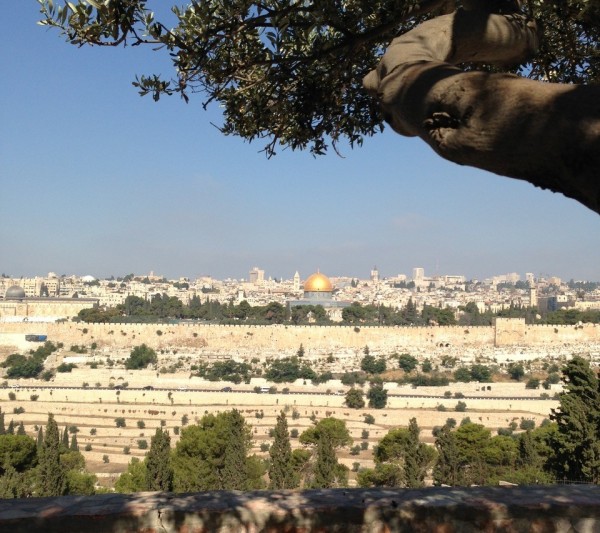
Every Good Friday we have the narrative of Jesus’ passion from the gospel according to John. In the account, when Jesus is going to be sentenced to death, Pilate asks the crowd “Shall I crucify your king?” Surprisingly, the answer does not come from the crowd. Rather, we read that the chief priests reply, “we have no king but Caesar” (John 19:15). This sentence is, what I believe, one of the greatest ironies that the gospel according to John offers. The reason behind lies in Israel’s notion of kingship, especially during the time of Jesus.
Although we are used to hearing the terms messiah and Son of David being connected to Jesus in a positive way, the earthly institution of the monarchy was not always perceived positively in Judaism and the Hebrew Scriptures. Israel was, in fact, a nation destined to not have a king. Even more, God warns against the idea of a human monarch through the prophet Samuel (1 Samuel 8:10-22). But the people of Israel wanted to be “like the other nations” and they insisted they needed a king. God grants their petition, and a catena of unsuccessful kings starts with Saul. There were even great problems with David and his son Solomon, who according to the books of Kings violated the only law that kings had to obey (Deuteronomy 17:14-20; 1 Kings 10-11). The monarchical institution was so unsuccessful that Israel ended up divided, destroyed, and exiled.
After the Babylonian exile, when the people of Israel are able to return (through God’s intervention), the monarchy is seen in a different light. Only God is the true king of Israel. They should have not put their trust in princes nor mortal man, only in God (Psalm 146:3). This reflection is seen clearly in the composition of the Book of Psalms. If we read carefully in the way the psalms are organized, we will see that the first three books of the Psalms (Psalms 1-89) contain the history of the Davidic monarchy, including his sins, and which ends with God’s rejection of David (Psalm 89:39-46). In the rest of the collection, especially in Psalms 90-96 we find the confession that God is King, leaving behind any desire for a human monarch. This idea became stronger after their reflection of a failed monarchy. Of course, the desire to reestablish the Davidic monarchy was kept alive in small circles; we see this reflected in the gospels. Jesus is given the title of Son of David by individuals and crowds in the gospels, but even he sees the dangers of thinking about him as another “earthly king” (John 6:15).
Let us now return to the dialogue between Pilate and the crowd. What an irony is that the chief priests, who most probably prayed day and night with the psalms, proclaim Caesar as their only king. But why? They are willing to betray their own core belief that only God is king of Israel in order to get him rid of Jesus. “We have no king but Caesar” is the culmination of a plot to get Jesus killed by the Romans. They clearly chose to go against a core belief and even side with their oppressor in order to sentence Jesus, who threatened their social position and religious authority (John 11:48). These religious leaders were so afraid about the idea of Rome taking away their temple that they betrayed their own religion in order to maintain the status quo. This irony is not new in Scriptures. It is also prefigured in the Exodus story when the people of Israel after being freed from Egyptian oppression, longed for the false security they had in Egypt. They preferred the comfort of food while being enslaved in Egypt instead of the freedom and hard life in the wilderness (Exodus 16:3).
This Good Friday is a time we can reflect on how our fears may be leading us away from God and how we may be holding onto some false “kings” in order to feel safe and protected. For the religious leaders of the passion narrative in John, Caesar became a false protection. They rejected the unconventional message of freedom given by God in Jesus and they held onto what they knew was safe even in the midst of Roman oppression. For the people of Israel in the wilderness, Egypt became a false security longing for it and protesting against Moses who led them to freedom. We may feel secure with a political party or an economical system but the fear of losing such security may be holding us back from the mission of the Gospel, and at the end we may be proclaiming a candidate or a political party our “king.” May fear never hold us back to be generous or to betray the gospel of Jesus. The cross we celebrate today is the opposite of a life filled with fears.
The question of Jesus' identity is key in all gospels. This same key may help us to interpret Holy Week. In the Gospel we would have read in the Palm Sunday procession, the people of Jerusalem wonder, "Who is this?" (Matthew 21:11). The celebration of the Paschal Mystery helps us discern the identity of Jesus and raises a profound question: If this is Jesus, who will I be?
Jesus is the new Passover lamb. His crucifixion begins at the same time when the fires were lit to cook the lamb of the Jewish Passover dinner. Today, Good Friday, we read the version of the Passion according to John. In John, the last words of Jesus on the cross, "It is finished," are an echo of the words with which the Seder ends, the Jewish ritual dinner. Any Jew would recognize the connection at once, both around the end of the first century when they were written, and today.
Understanding the crucifixion and the connection to the Jewish Passover informs us of the deeper meaning of the Paschal Mystery. Holy Week is an invitation for us to live like Jesus lived and to learn to give our lives up for the salvation of others, dying to ourselves the way Jesus did on the first Good Friday. If we live like he lived and die to ourselves like he died, we also will be risen from death like He was, and as he promised his disciples many a time.
On Holy Thursday we reflect about how Jesus lived: loving those who were his own and loving them to the end; in the washing of feet, Jesus invites us to discover life’s purpose and meaning in serving others. In a normal year, we would then stay during the late hours of the night in adoration in a setting that symbolizes the garden of Gethsemane, where share on Jesus’ prayer, a prayer born of his deep love for life.
On Good Friday we reflect about how Jesus died, and we learn to die the same way. We imitate the death of Jesus by dying to ourselves, overcoming the original temptation we all have to place our needs above those of others, to be the center of our own universe.
Who is this? It is Jesus, who today, Good Friday, dies out of love for those who were his, disciples and friends who God had entrusted to him. It is Jesus, who not only dies for his own in this world, but also dies out of love for the human condition, as well—Jesus, Son of Man.
It is the Suffering Servant of Isaiah (first reading of Good Friday) who agonizes and pleads with the Father to set aside the chalice that is his turn to drink—the Jesus whose heart was broken long before it was pierced by a spear —betrayed, denied and abandoned by his own, insulted and repudiated by others. The Jesus who dies forgiving himself and others. It is Jesus who dies promising paradise to the crucified thief. In the midst of terrible suffering, Jesus continues to teach and heal. Jesus dies the way he lived.
If this is the Jesus of Good Friday—serving, healing, loving to the end—who are we going to be?
A popular Good Friday tradition, very well-known especially in Latin America, is what we call the "sermon of the seven words." People gather in their parishes, on Friday after the adoration of the Cross, and a sermon is preached on each one of the seven words (or phrases) that Jesus pronounced on the cross in the different Gospels.
On the theological level, the cross is a liberating and salvific event, but at a historical, human, personal and psychological level, the cross was a harrowing experience for Jesus. It is, in a way, the image of total loss. On the cross Jesus not only lost his life but also his disciples, his plans, his identity, his good name, his reputation. On the cross Jesus loses everything.
The “seven words” can become, for us, a good tool in order to face our own experiences of loss. We live in a society that values success, and by it, establishes the worthiness of a person. But what we might have to learn and teach is not so much how to win but how to to lose. In fact, not knowing how to cope with our losses is the underlying cause of violence or intolerance, for instance. Both violence and intolerance are symptoms that indicate that those who practice them are not well prepared for loss. And yet, from an early age our lives are full of losses: one can lose a loved one, lose a fight, a discussion, a privilege, or a job, and it depends on how well prepared we are that we can move on after an experience of loss. We must learn to handle losses, and Jesus, in his words on the cross, can give us a clue about how to cope with our own experiences of the cross, our Good Friday, and thus prepare ourselves for the resurrection.
1. «My God, my God, why have you forsaken me» (Matthew, 27:46 and Mark 15:34). The scream is heartbreaking, devastating and shocking, coming from Jesus himself. But, it is also extremely human. It’s a cry of frustration: I can’t go on! It is a cathartic cry that, one way or another, helps us to let go. As we live our crosses it is necessary to know how to express ourselves, without repression. We have to be able to say without fear or remorse what we are suffering, at least to our own selves.
2. «Father, forgive them because they do not know what they are doing» (Luke 23:34). Every experience of loss is often accompanied by the assignment of guilt, either to others or to oneself. That is why, to be able to assume loss, we must embrace the experience of forgiveness. The absence of grudges is essential for the healing of wounds.
3. «I tell you the truth, today you will be with me in paradise» (Luke 23:43). Often the experiences of loss are, at the time, meaningless and defeat any logical explication. But we should try to discover, even in a counter-intuitive way, the positive elements that such experience can trigger.
4. «Father, into your hands I commend my spirit» (Luke 23:46). In times of loss we must recognize that we cannot always be in control of situations or other people. Letting go, knowing that events are beyond us is a way to deal with losses in a healthy way. We have to learn how to let go.
5. «I thirst» (John 19:28). Asking for help is always a way to make our crosses more bearable, recognize our vulnerability and, thus, our obvious need for others. We are not heroes.
6. «Woman, here is your son ... here is your mother» (John 19: 26-27). One of the most difficult dimensions of a loss is to accept that people around us do not have to live our situation, and even though they may show empathy toward us, we should not drag others to our own crosses or our own pits of pain.
7. «It has been accomplished» (John 19:30). In moments of loss or mourning, sometimes as a consolation we find unhelpful expressions like "everything happens for a reason" or even worse, "God has His own plans” or “this is simply what He wanted." Although unfortunate, these expressions reveal the idea that often our crosses, the sufferings that invade us at a certain moment, are doors to new paths that without them we would never have explored. There is meaning, perhaps, in our suffering.
Let us examine these words of Jesus on the Cross; let all our experiences of loss, perhaps with the help of time, be positive, so that Good Friday we may not have the last word and we may reach the Resurrection.




